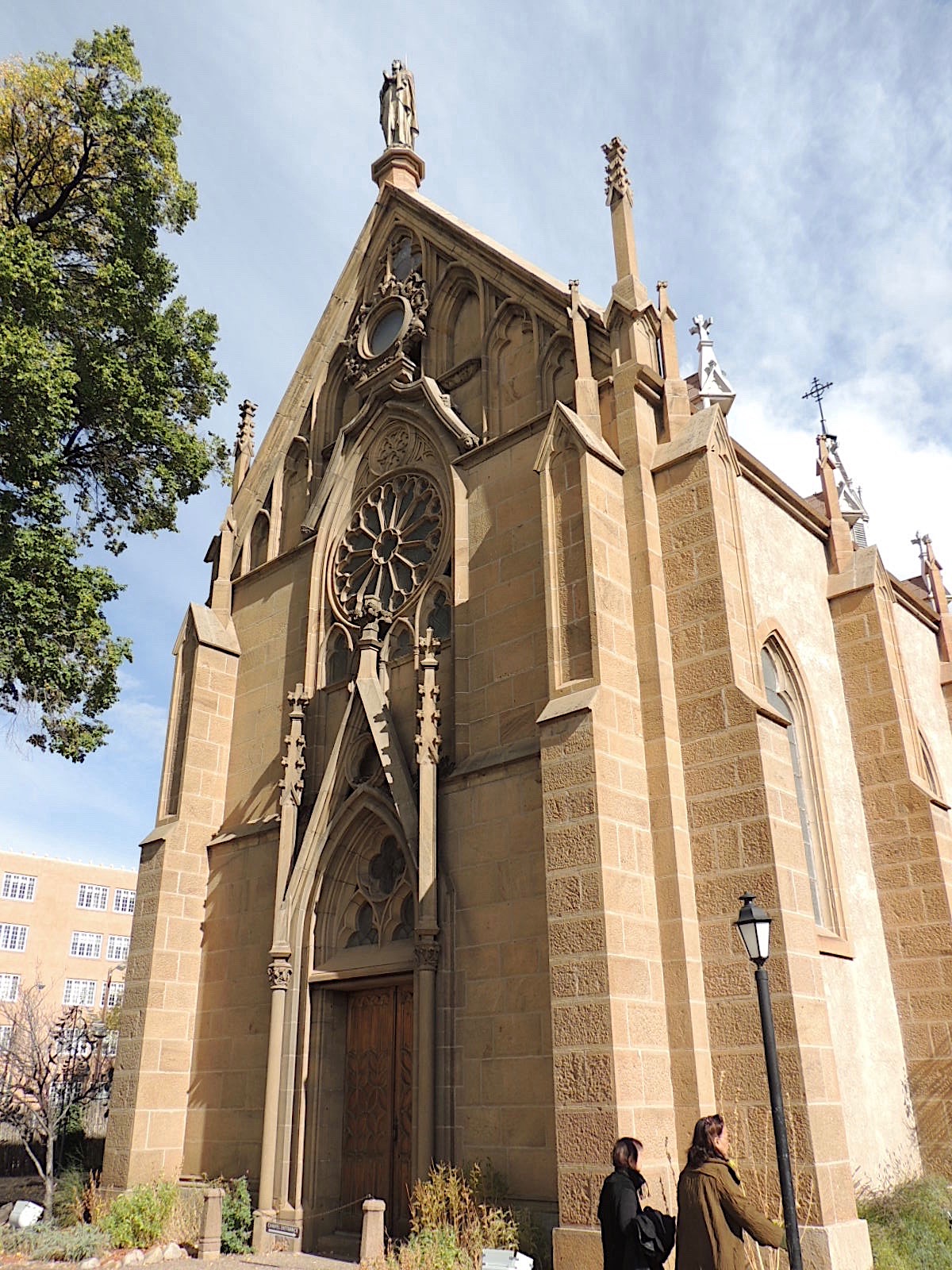
Santa Fe attracts over a million visitors each year. The downtown area draws people to the unique Indian and Spanish art, clothing and food that separates Santa Fe from other destinations. People flock to the impressive Cathedral Basilica of Saint Francis of Assisi that is the keystone of the Plaza. Often unknown or dismissed is Loretto Chapel, a diminutive structure one block SW of the cathedral.
Loretto Chapel is part of the warp and weft of Santa Fe history. In 1850, Bishop Jean Baptiste Lamy, head of the New Mexico Territory, wanted to educate territory inhabitants for whom he felt a responsibility. His letter campaign for educators drew a positive response from the Sisters of Loretto, seven of whom began the grueling journey to Santa Fe (only five arrived at the end of the trail). The nuns’ effort began small, but grew to about 300 (female) students.
Bishop Lamy commissioned Paris architect, Antoine Mouly and his son to design St. Francis. Then, Lamy encouraged the Sisters to persuade Mouly to design a chapel…which Mouly did. Since Mouly helped renovate St. Chapelle before his arrival in Santa Fe, he incorporated his love of the design into the Lorreto Chapel. Local lore purports that the nuns pooled their monies to fund the building of the chapel.
The Staircase:
No question, Loretto Chapel’s top attraction is the two helical staircase. Once the chapel was completed, there was no access to the choir loft, except via ladder. The nun’s long habits made ladder climbing less than convenient. For nine days, they prayed to St. Joseph for a solution to their dilemma. On the ninth day, a shabbily dressed man offered his services to build the staircase. He used the most basic of tools, no nails (only pegs). At the end of three months of seclusion, he vanished, leaving the staircase with two 360 degree turns and no center support. Miraculous! Even the wood used was foreign to the area.
The Sisters proclaimed that St. Joseph himself built the staircase. Observing the finished project, built with a square, a saw and warm water, a miracle seems to be the most probable explanation.
Chapel Interior:
The spires on the front altar are what most resembles St. Chapelle.
The stained glass windows came from Paris. They made the journey through New Orleans, up the Mississippi River to St. Louis, then, by wagon to Santa Fe. So much could have gone wrong. But, the light makes the rose window and Christ figures blaze in the afternoon sun.

Stained glass windows from Paris, France. Shipped to New Orleans, then, forwarded to St. Louis. Then, wagon to Santa Fe.
Now Loretto is a museum and a popular wedding venue.
Located at 207 Old Santa Fe Trail, downtown Santa Fe, NM.
Official website: http://www.lorettochapel.com/staircase.html
About the author:
Annie Coburn recently returned from seven months traveling in South America. In 2010, she created Fab Placez. In 2014, she changed the name of her website to FAB Senior Travel to better define her target audience, mature travelers. She publishes travel articles from other writers, as well as her own, in order to provide diversity of locations to match the breadth of FAB’s subscribers’ interests.
Website: http:// www.fabseniortravel.com







